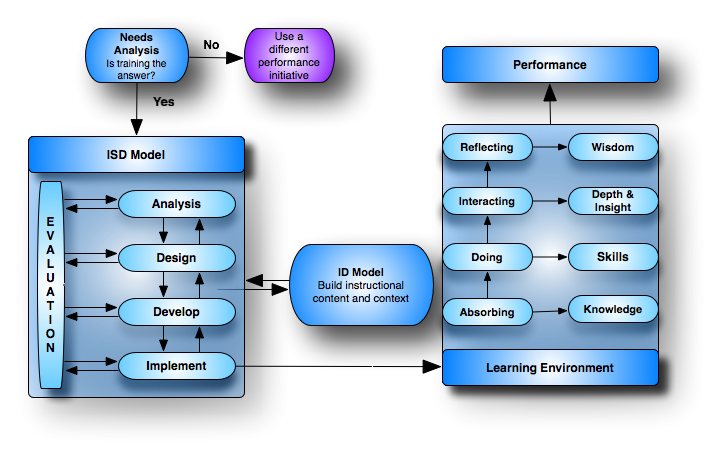Fred Keller - The Personalized System of Instruction (PSI)
PSI is also known as the Keller plan. First described by Fred Keller in Good Bye Teacher - Journal of Applied Behavior Analysis (1968). It is composed of small self-paced modularized units of instructions where study guides direct learners through the modules. Unit tests are given on each module where the learners must show mastery by scoring at least a 90%. Student proctors are used to help with individual problems and lectures are given for motivational problems only. PSI combines mastery learning with principles of reinforcement learning theory. Mastery learning requires that the desired student performance be stated precisely using performance or learning objectives.
The modules can consists of reading assignments, films, audio tapes, field trips, programmed instruction, conducting an experiment, conducting an interview, etc. The performance evaluations can be essays, multiple choice, oral exams, written report, etc. Although not required, bonus points are encouraged to be given to learners who complete the tests in a timely manner since procrastination in a self-paced course is the biggest problem.
Keller divided the process for creating PSI into four steps:
- Determine the material to be covered in the course.
- Divide the material into self contained modules (segments).
- Create methods of evaluating the degree to which the learner has conquered the material in a given module.
- Allow learners to move from module to module at their own pace.
(1) The go-at-your-own pace feature, which permits a student to move through the course at a speed commensurate with his ability and other demands of his time. (2) The unit-perfection requirement for advance, which lets the student go ahead to new material only after demonstrating mastery of that which preceded. (3) The use of lectures and demonstrations as vehicles of motivation, rather than sources of critical information. (4) The related stress upon the written word in teacher-student communication; and finally: (5) The use of proctors, which permits repeated testing, immediate scoring, almost unavoidable tutoring, and a marked enhancement of the personal-social aspect of the educational process. — Fred Keller (1968).
Pascarella and Terenzini's (1991, p91-93) reviewed seven different studies and concluded that “PSI is effective in fostering improved subject matter mastery over more conventional instructional approach. This is true regardless of whether the synthesis is quantitative or narrative.”
They also reviewed two meta-analytical syntheses of PSI and learning. The first was based on 19 studies and had an effect size of 0.42 of a standard deviation. The second one was based on 61 studies and had an effect size of 0.49 of a standard deviation which translates to an achievement advantage of 19 percentile points (in other words, if the conventionally taught groups were achieving at the 50th percentile, the PSI groups were, on the average, at the 69th percentile).
Next Steps
References
Keller, Fred (1968). Good Bye Teacher. Journal of Applied Behavior Analysis.
Pascarella, Ernest T. & Terenzini, Patrick T. (1991). How College Affects Students. San Francisco: Jossey Bass.



